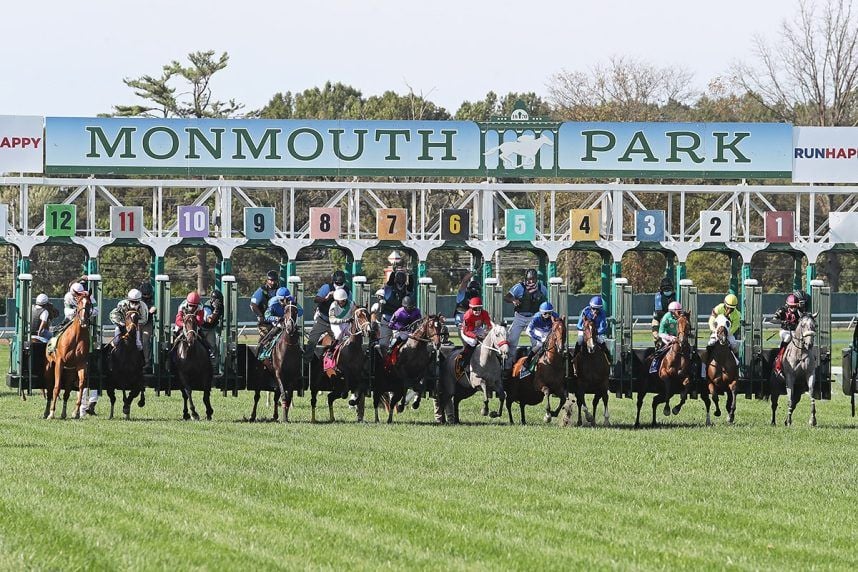New Jersey Racetracks Seek Slot Machines, Legislation Filed For Referendum

Posted on: January 12, 2024, 10:46h.
Last updated on: January 12, 2024, 11:11h.
New Jersey racetracks that currently offer sports betting want privileges to house slot machines. A state senator has obliged the request and has introduced legislation that seeks to ask state voters to expand gaming at horse racing venues.

New Jersey Sen. Joseph Pennacchio (R-Morris) this week introduced Senate Concurrent Resolution 14. The statute proposes a constitutional amendment giving the state legislature the authority to establish slot machine gambling at horse racetracks.
Revenue from the expanded slots would be allocated to the state’s retirement program and would support state horsemen and public investments in Atlantic City.
New Jersey’s Constitution currently limits Las Vegas-style casino gambling to Atlantic City.
Efforts to allow casinos in the northern part of the state and slots at racetracks have failed in several previous legislative sessions. Pennacchio has been authoring racino legislation since 2014 to no avail.
Racino Bill Details
If SCR14 somehow changes the tide this year in Trenton and wins enough support in each chamber, the statute would ask for slot machines at state-licensed horse racetracks. Voters would weigh in during the 2024 presidential election.
There are currently three such qualifying venues, including The Meadowlands in East Rutherford, Monmouth Park in Oceanport, and Freehold Raceway. Each racetrack currently offers on-site and mobile sports betting.
If the racetrack slot machine referendum would gain simple majority support, the New Jersey Legislature would then be cleared to pass legislation authorizing such gambling at the tracks. The racino slots would be subject to the same 8% tax that physical slot machines in Atlantic City pay on their gross gaming revenue.
Pennacchio suggests setting aside 60% of that tax money for the state pension program for public employees. Thirty percent would go directly to the nine casinos in Atlantic City, 7% would be used for economic improvement projects in Atlantic City, and the remaining 3% would benefit the horsemen.
The state’s nine casinos will presumably oppose Pennacchio’s legislation, as they have done in the past.
Atlantic City’s gaming industry continues to stress that it remains in recovery mode from the COVID-19 pandemic. Despite brick-and-mortar gaming revenue up 1.8% through November from the same 11 months in 2022, the casinos say higher overhead costs have more than cut into the gaming increases.
Casino slot win from January through November 2023 totaled nearly $1.94 billion. That’s 2.5% richer from 2022. Table win during the same period fell 0.1% to $679 million. December’s report hasn’t yet been revealed.
Gaming Advertising Bill Filed
Along with Pennacchio’s racino measure, New Jersey is beginning its 2024 session with a gaming bill to limit how casinos and sportsbooks advertise. Senate Bill 2156 from Sen. Joseph Cryan (D-Union) would restrict “advertising for casino games and sports pools under certain circumstances.”
Those circumstances would include requiring gaming interests to ensure that their marketing materials don’t reach individuals on the state’s self-excluded list or people under the legal gaming age. The bill would require the New Jersey Division of Gaming Enforcement to “promulgate rules to restrict advertisements made by casino licensees and sports wagering licensees, and their contracted operators, that relate to casino games or sports wagering, only if those advertisements are fraudulent or deceptive, are directed at individuals on the lawfully established self-exclusion list, or directly appeal to individuals under the legal age to gamble or wager.”
Cryan said it’s vital the state better protects consumers and those who are trying to limit their exposure to gaming.
Gambling on casino games or sporting events is a potentially addictive behavior that can result in mental, social, and financial stresses to an individual, their family, and their community. While gambling in various forms and through various mediums is legal in this state, it is necessary to take steps to protect vulnerable populations … from the adverse effects associated with gambling,” Cryan said.
Both SCR14 and SB2156 have been directed to the state Senate’s Government, Wagering, Tourism & Historic Prevention Committee for initial review.
Source: casino.org
